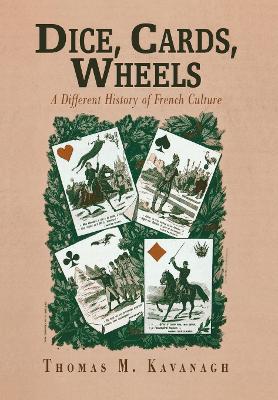Critical Authors and Issues
2 total works
The literature and art of the French Enlightenment is everywhere marked by an intense awareness of the moment. The parallel projects of living in, representing, and learning from the moment run through the Enlightenment's endeavors as tokens of an ambition and a heritage imposing its only and ultimately impossible cohesion. In this illuminating study, Thomas M. Kavanagh argues that Enlightenment culture and its tensions, contradictions, and achievements flow from a subversive attention to the present as present, freed from the weight of past and future.
Examining a wide sweep of literary and artistic culture, Kavanagh argues against the traditional view of the Age of Reason as one of coherent, recognizable ideology expressed in a structured narrative form. In literature, he analyzes the moment at work in the inebriating lightness of Marivaux's repartee; the new-found freedom of Lahontan's and Rousseau's ideals of a consciousness limited to the present; Diderot's championing of Epicurean epistemology; Graffigny's portrayal of abrupt cultural displacement; and Casanova's penchant for chance's redefining moment. The moment in art theory and practice is explored in such forms as de Piles's defense of color; Du Bos's foregrounding of perception; Watteau's indulgence in a corporeal present; Chardin's dismantling of mimesis; and Boucher's and Fragonard's thematics of desire.
Gambling has been a practice central to many cultures throughout history. In Dice, Cards, Wheels, Thomas M. Kavanagh scrutinizes the changing face of the gambler in France over a period of eight centuries, using gambling and its representations in literature as a lens through which to observe French culture. Kavanagh argues that the way people gamble tells us something otherwise unrecognized about the values, conflicts, and cultures that define a period or class. To gamble is to enter a world traced out by the rules and protocols of the game the gambler plays. That world may be an alternative to the established order, but the shape and structure of the game reveal indirectly hidden tensions, fears, and prohibitions.
Drawing on literature from the Middle Ages to the present, Kavanagh reconstructs the figure of the gambler and his evolving personae. He examines, among other examples, Bodel's dicing in a twelfth-century tavern for the conversion of the Muslim world; Pascal's post-Reformation redefinition of salvation as the gambler's prize; the aristocratic libertine's celebration of the bluff; and Balzac's, Barbey d'Aurevilly's, and Bourget's nineteenth-century revisions of the gambler.
Dice, Cards, Wheels embraces the tremendous breadth of French history and emerges as a broad-ranging study of the different forms of gambling, from the dice games of the Middle Ages to the digital slot machines of the twenty-first century, and what those games tell us about French culture and history.

